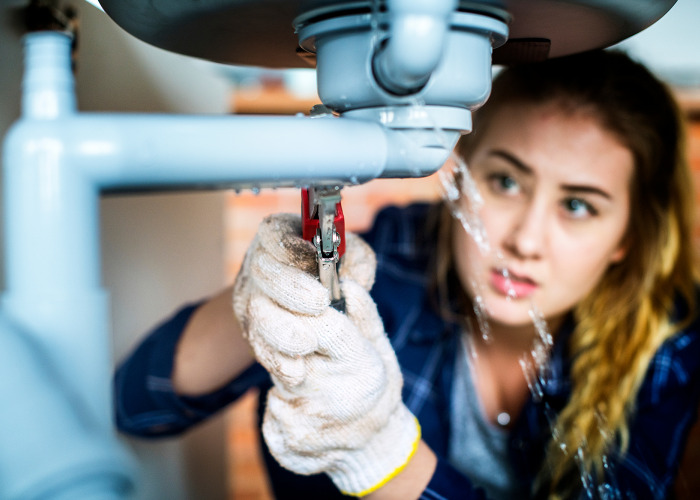
Spot the common plumbing problems in your home and know when you need to call for a residential plumbing repair service. Read this article to learn more.
Common Residential Plumbing Problems and How to Spot Them (Header 1)
At some point, homeowners are bound to experience plumbing issues in their houses. These problems can range from dripping faucets to major pipe leaks, and most of them can go undetected. Spotting these issues early on will help you come up with a solid plan that you can discuss with your trusted residential plumbing repair service provider. Learn about some of the most common plumbing problems so you know when to call a professional before they become an emergency.
Dripping Faucet
Dripping faucets are one of the most common plumbing problems in homes. It is a minor issue that causes the most nuisance. The annoying dripping sound it makes in the middle of the night is not only disturbing, but the leaking will also add up to your water bill. According to the Environmental Protection Agency, one drip per second can waste more than 3,000 gallons per year. That is why dripping faucets should be addressed immediately.
Finding out the cause of leaky faucets can be hard. It can be due to different things, such as worn-out washers or faulty o-rings. This issue can be fixed by replacing the washers. But, if the leak has been going on for a long time, it can corrode even the valve seats of your faucet. When that occurs, it’s best to call a professional plumber to do the job.
Running Toilet
Just like dripping faucets, a running toilet can also spike up your water bill. It can be caused by different problems with the toilet’s inner workings, such as a damaged flapper valve, imbalanced float, or loose fill tube.
Running toilets are very easy to spot. If you see that your toilet continues to gush out water, you should check the internal parts to find the issue right away. You can start fixing the toilet by adjusting the valves or floats. If that doesn’t work, the workings might need replacement.
Low Water Pressure
If only a trickle of water comes out from your tap, you could be experiencing a water pressure issue. This problem does not only happen in old houses; it can also occur in new ones. A lot of things can cause it, but one of the most common sources is sediment or deposit build-up on faucet aerators.
Low water pressure can be a hassle because it disrupts your shower or cleaning. One way to fix this is by soaking your aerator or showerhead in vinegar to dissolve sediment build-up.
Leaky Pipes
Leaking pipes is also a plumbing problem that will eventually occur over time. If left unfixed, the dampness could damage your floors and furniture. Aside from that, it can be hazardous if you have children, pets, or elders at home. It can cause slip and fall accidents, which could even cost you more than a repair.
Leaks can be caused by clogs, incorrect pipe laying, cracked seals, pipe corrosion, or excessive water pressure. Wear and tear can be difficult to prevent, but spotting the problem early can help you save more money. One thing you can do is maintaining regular pipe inspections. You can also check for visible rusting or white lime deposits since they can be signs that your pipes are leaking.
Clogged or Slow Draining Sink and Toilet
Another unavoidable plumbing problem is clogged drains and sinks. This issue is common to homes with many occupants. Since more people are using the facilities, there is a higher possibility for hair and other insoluble items to get stuck on the pipes. If you see that water takes a long time before it gets drained, it is most likely caused by a clog.
Simple blockages could easily be fixed by using a drain snake, plunger, or chemicals. However, if the culprit is too deep in the pipes, you could be up for a residential plumbing repair service. You can also prevent clogging by installing drain screens and avoiding dumping things that are not dissolvable in water.
Faulty Water Heater
The average lifespan of a water heater, if maintained properly, can last between 8 to 13 years. Most homeowners that experience cold weather heavily rely on hot water. And, if your heater breaks down, your water could be muddy or smell and taste metallic.
Faulty water heaters are very easy to spot but fixing them can be a hassle. There are many causes, such as corrosion, sedimentary build-up, improper installation, and inadequate size or pressure. What you can do if your heater fails is to check the pilot light and temperature setting.
Act Quickly
Once you’ve encountered any of these plumbing problems, fix the issue right away. Letting leaky pipes or clogged drains go on for too long might become a problem that could cost you more than a simple repair. But, if you can’t resolve these problems alone, you can always call a trusted local plumber. With their expertise, they can spot and address plumbing issues immediately.